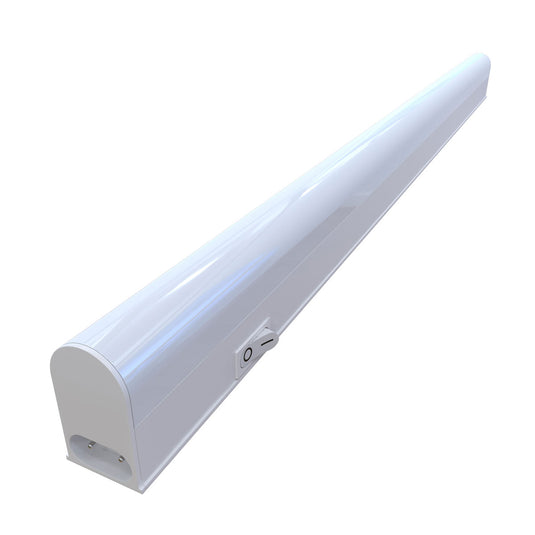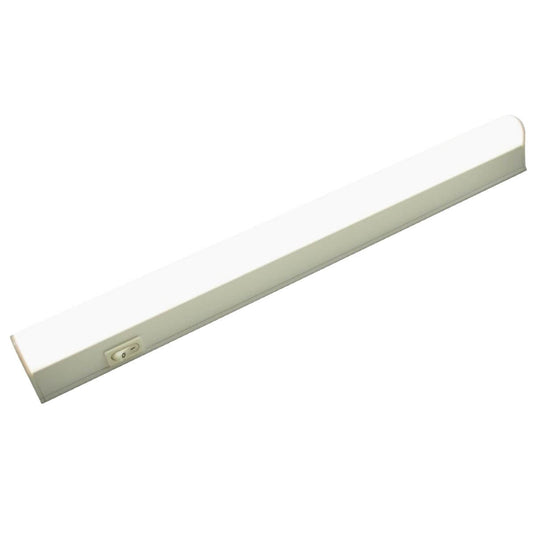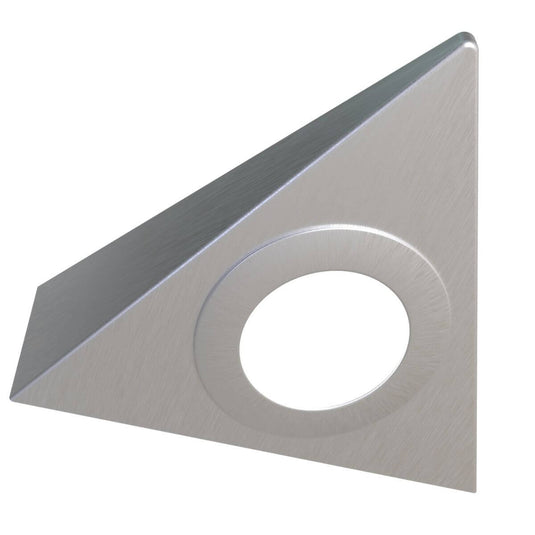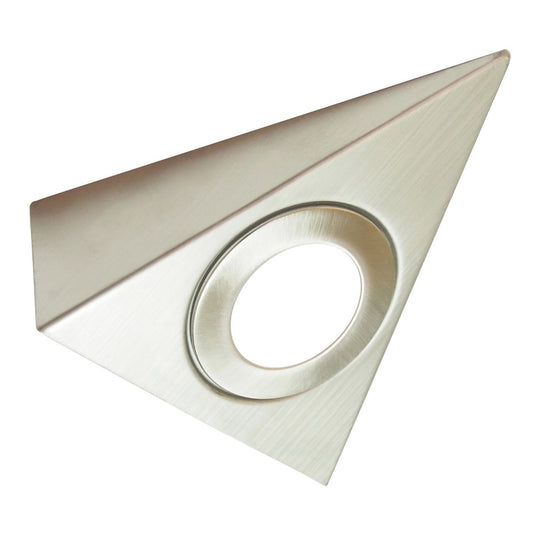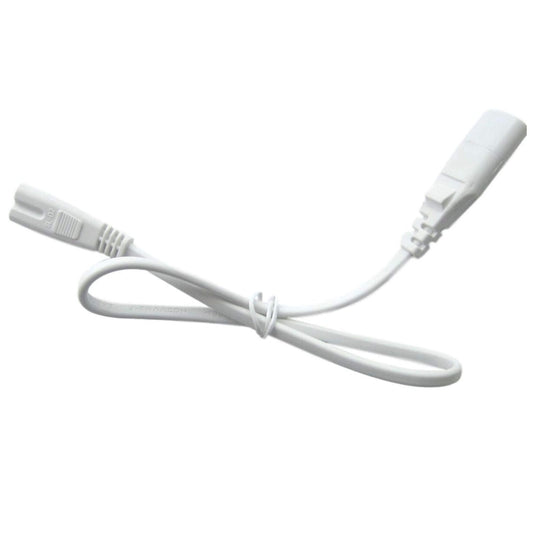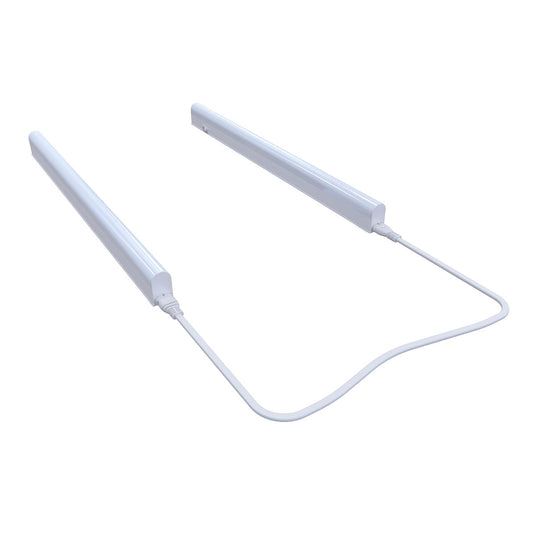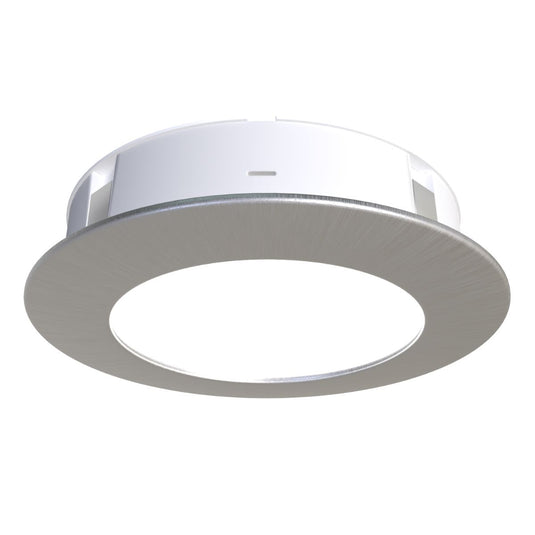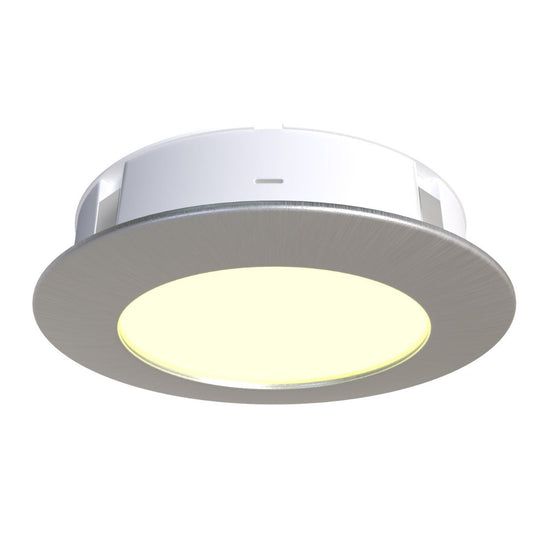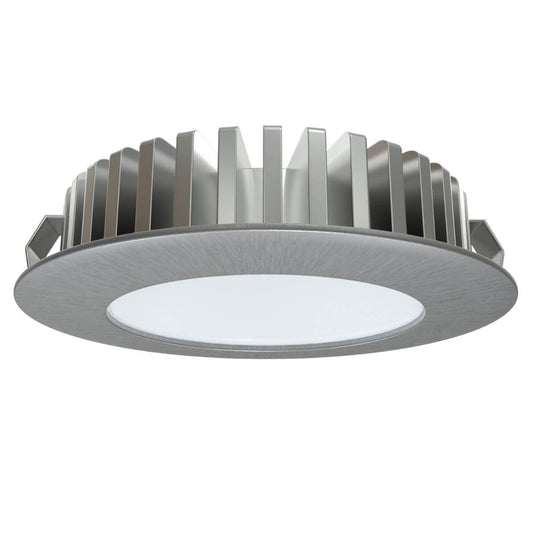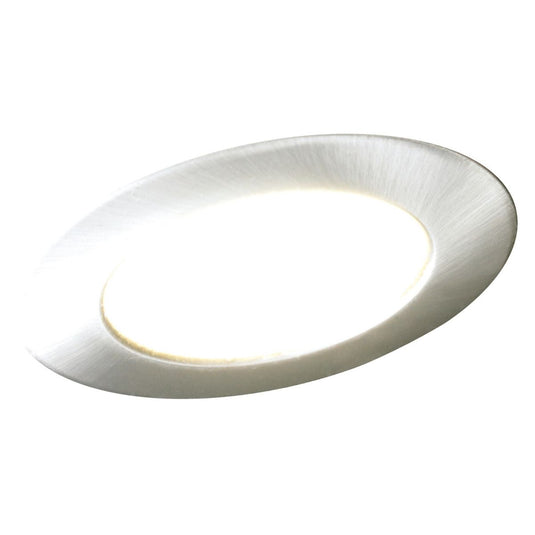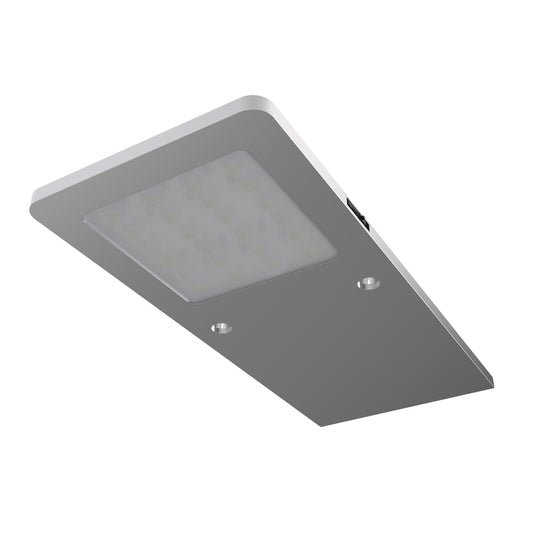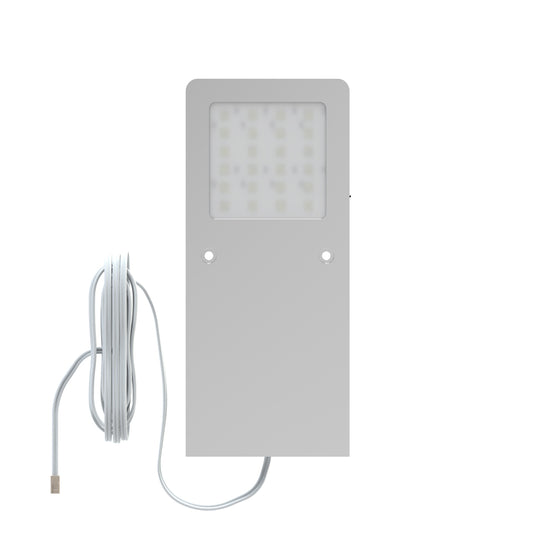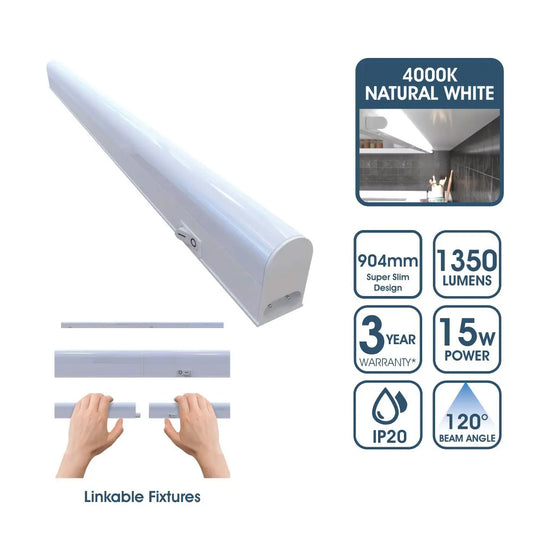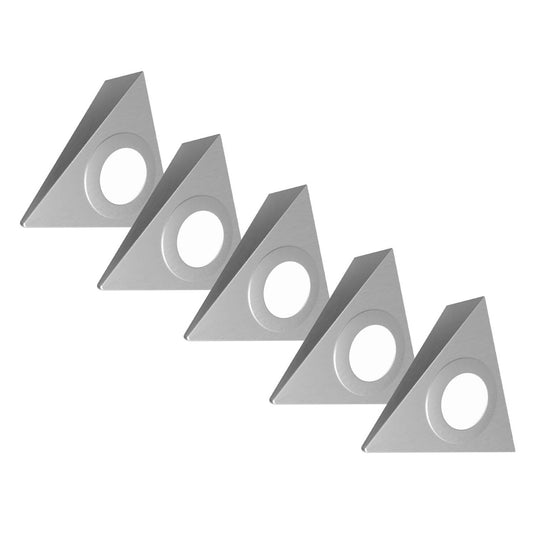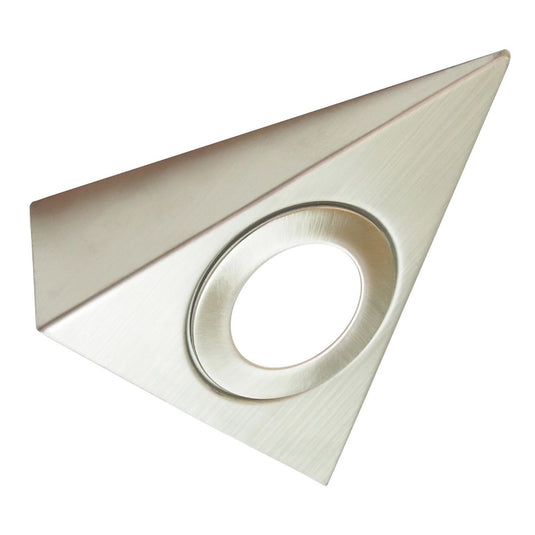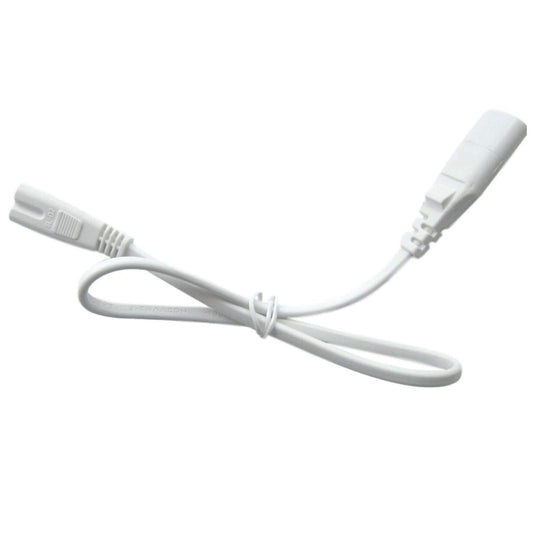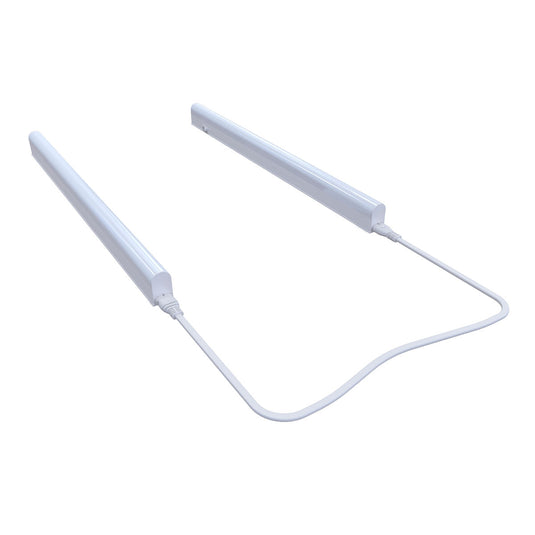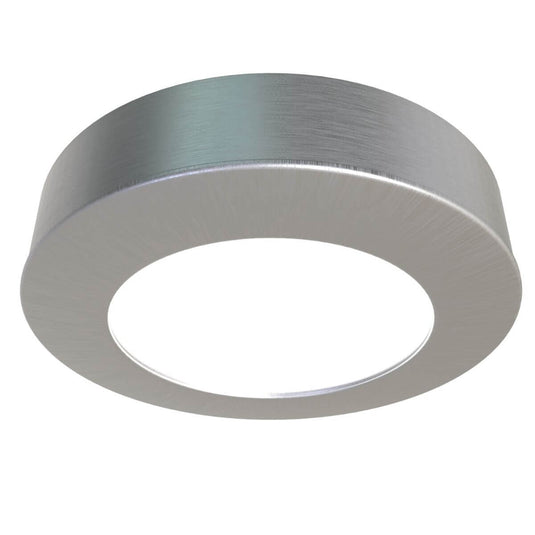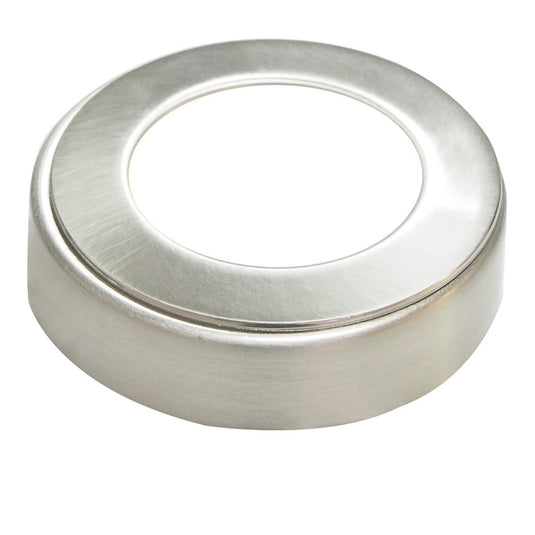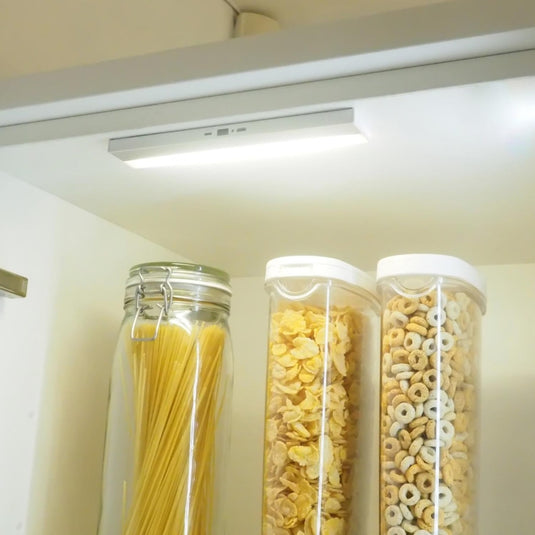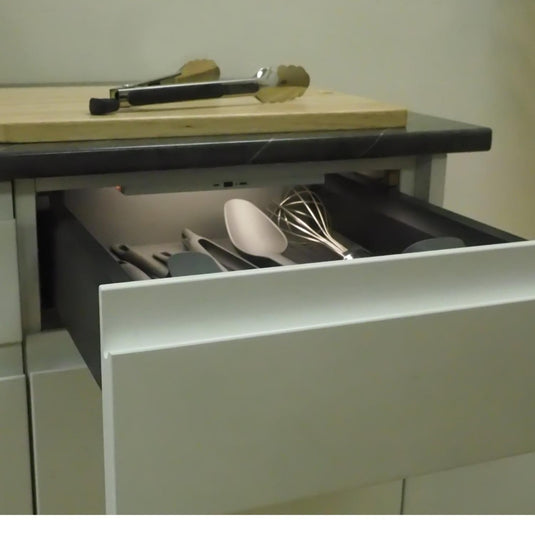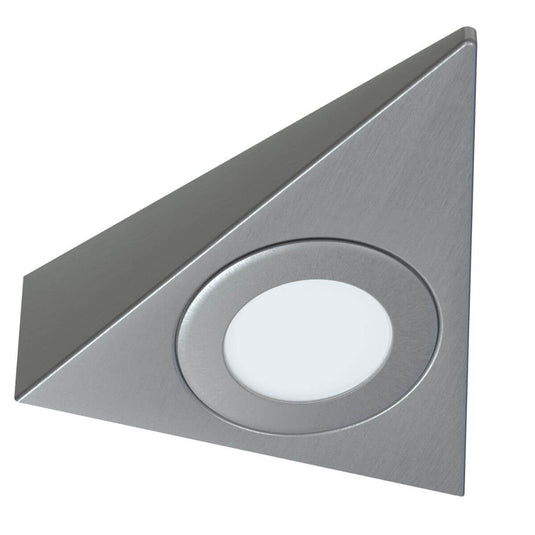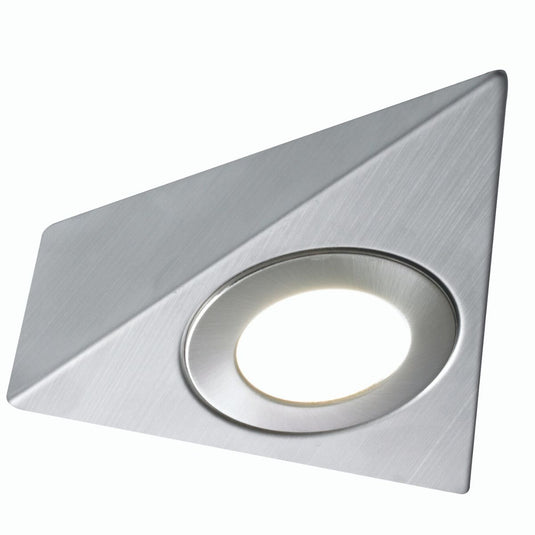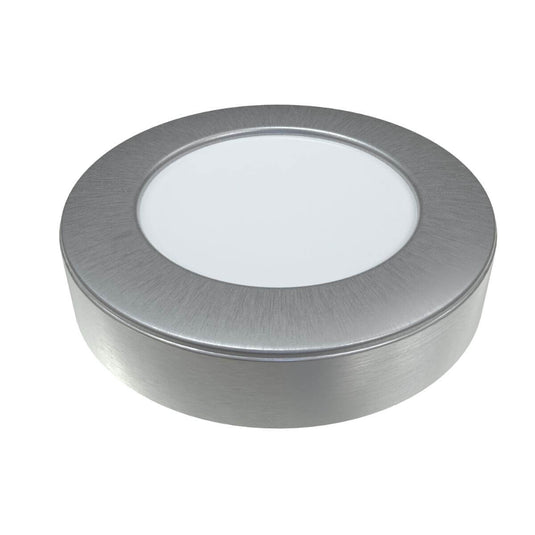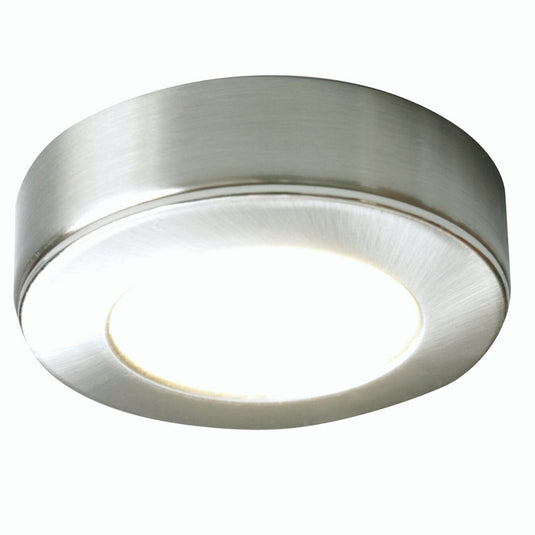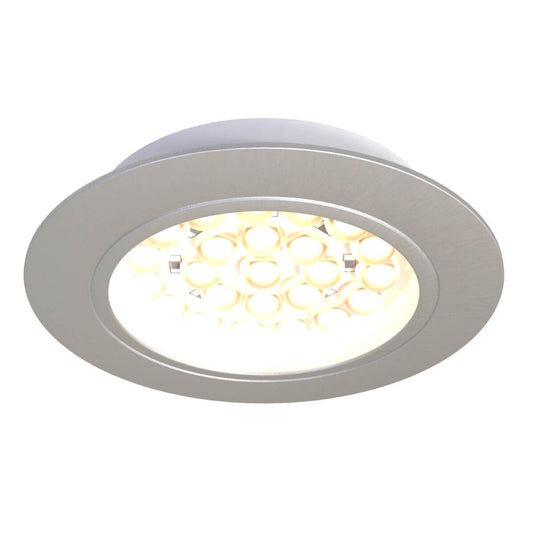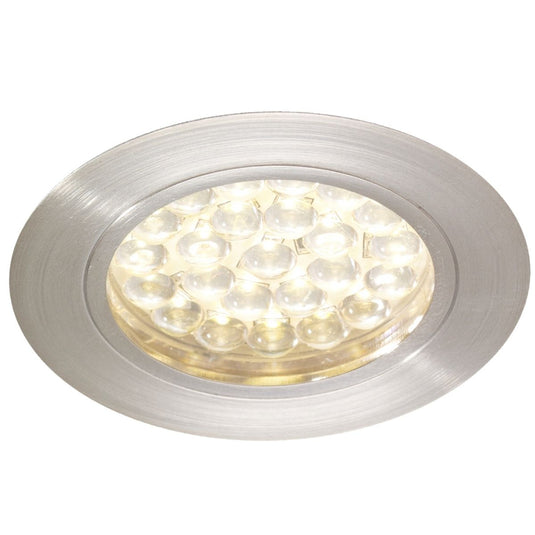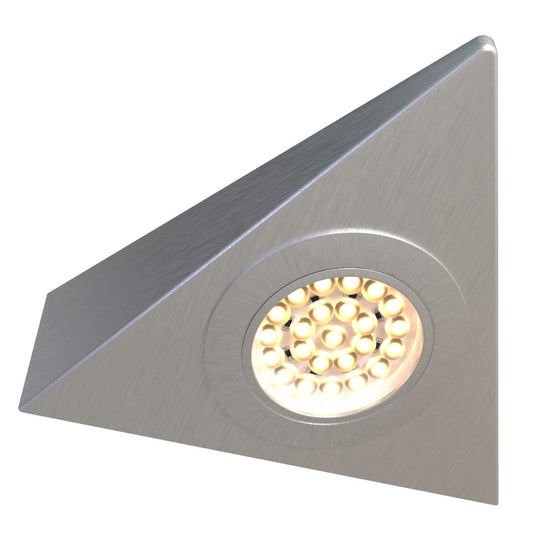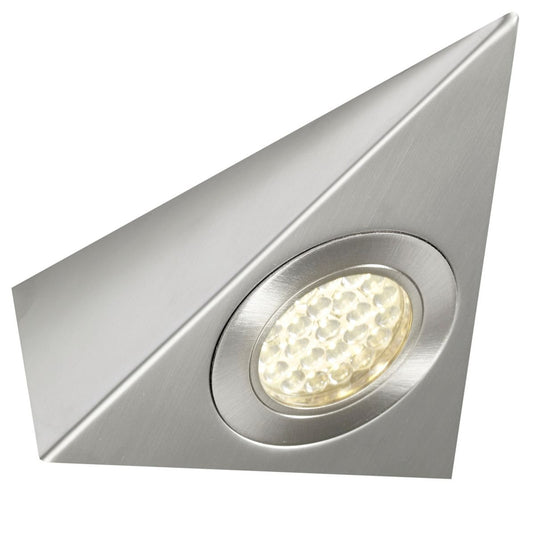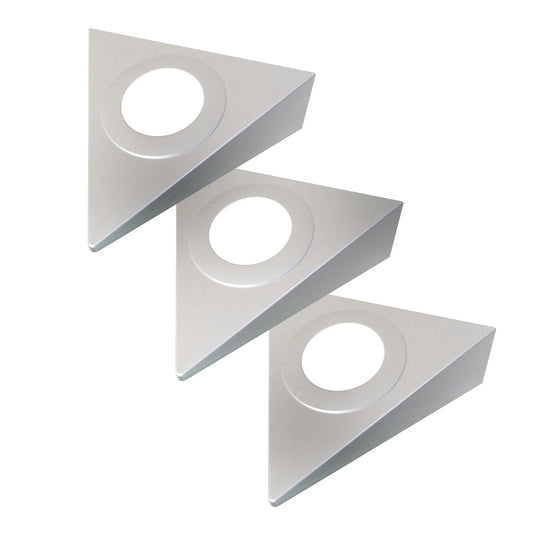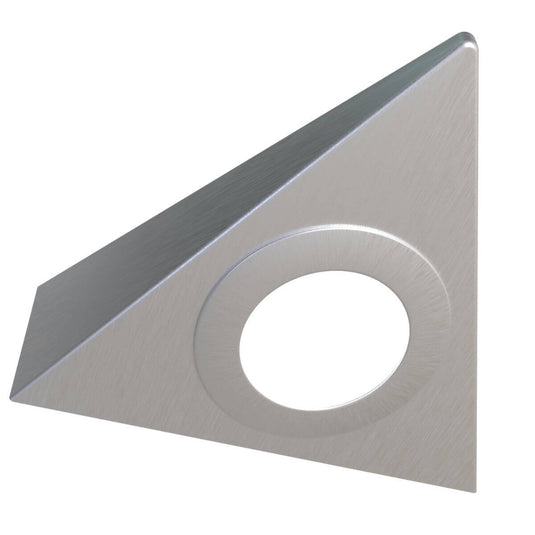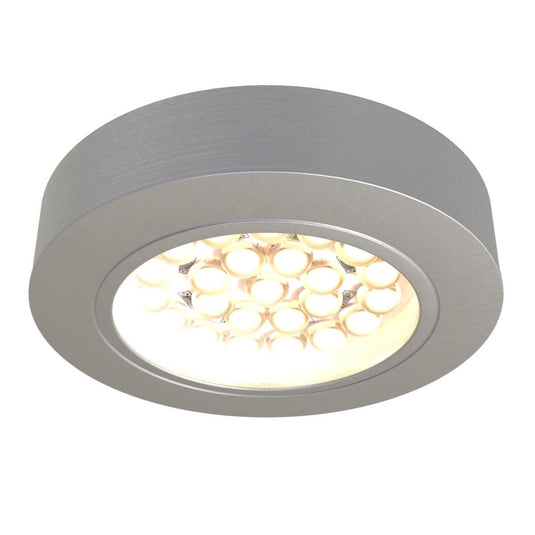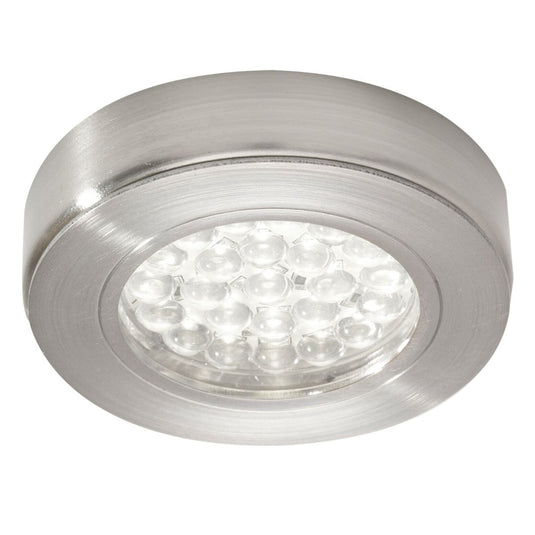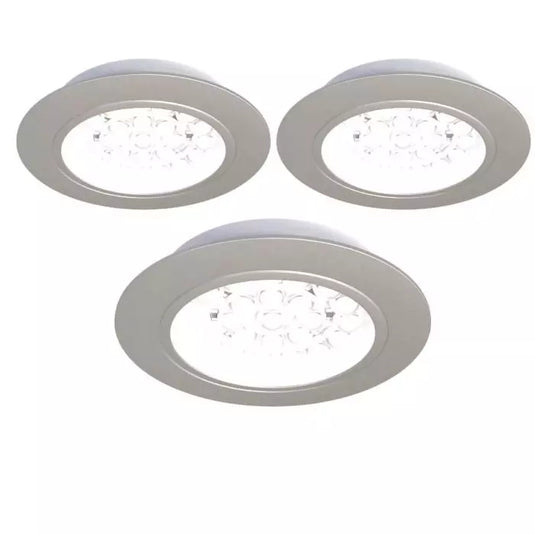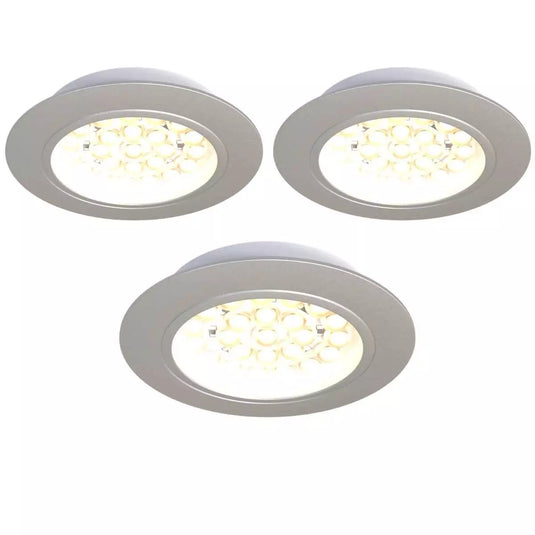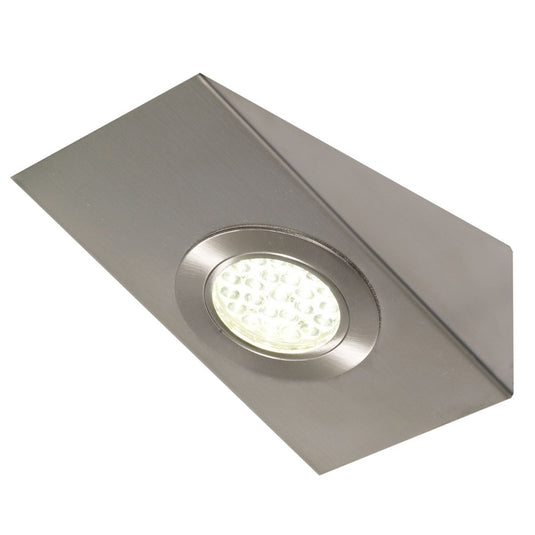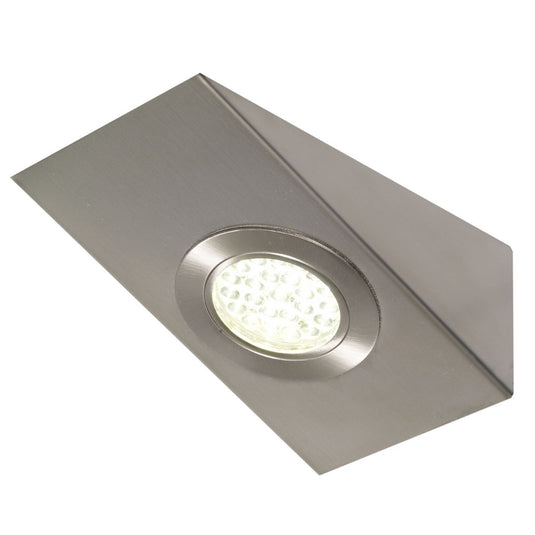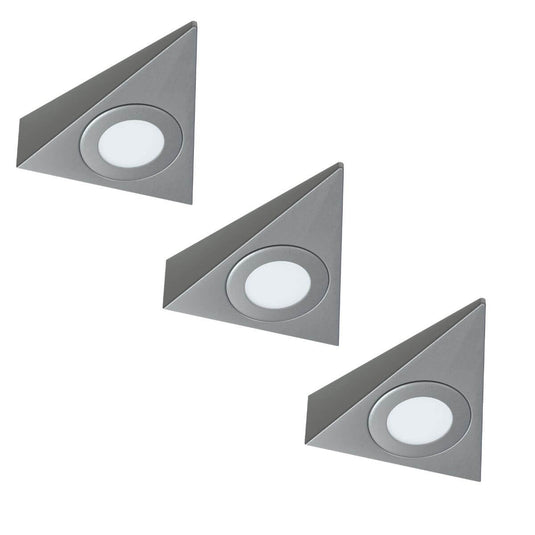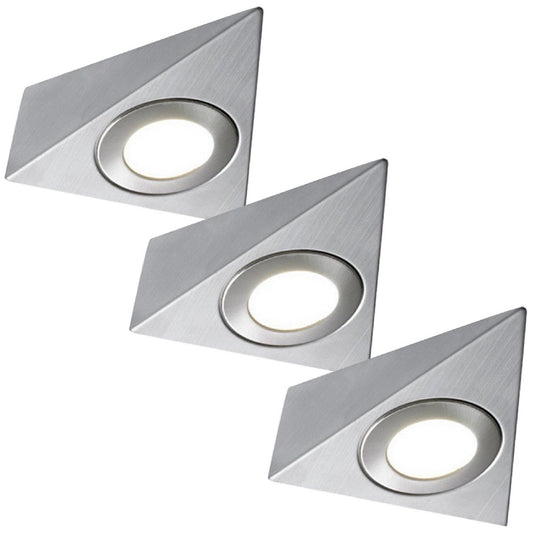Under Cabinet Lighting
Under cabinet lighting is gaining popularity because it's not only versatile and functional, but it also elevates the aesthetic design of any room that you use them in. These lights come in various shapes, sizes, and finishes, so you'll never run out of options whenever you decide to change the layout of your home.
Typically, under-cabinet LED lights are used as kitchen lights to provide outstanding light output for the counters, expanding your workspace. Additionally, these lights are available in various models such as battery-powered, cabinet strip lights, triangle LED lights, etc. Not only that but opposing colour temperatures too, so you can use them as task lighting or ambient lighting.
You could use a cool white or natural white light in the kitchen or your home office to give adequate illumination and improve safety. For the bathroom (under your vanity cabinets), you could use a warm white light to create a cosy atmosphere while you take a relaxing bath at the end of a busy day.
How Does Under-Cabinet Lighting Work?
There are three ways to power your under-cabinet lights, hardwire, plug-in, or battery.
- Hardwire – This method connects your lights directly to a switch on the wall. You can either have one switch for all your cabinet lights and your main light together, or you can group them per area so you can turn them on/off independently. If you prefer this option then you should enlist the help of an electrician, especially if you're not familiar with electrics.
- Plug-in – This method connects the LED driver to a plug wired to the end of its cable, which you then plug into any available socket. Plug them in when you need them and unplug them when you don’t. The downside of this method is it can be a little more difficult to make sure that the wires and plug aren't exposed, however, it's a great option if you want to DIY it.
- Battery – This method is self-explanatory. All you need is to look for an under-cabinet light that’s battery-operated and install them wherever you want. Just make sure that it’s easily accessible since you may have to change batteries often depending on your usage.
How to Hardwire Plug-in Under-Cabinet Lighting?
Hardwiring any type of lighting fixture is certainly not easy to install, especially without prior experience. So, if you know you're not that adapted to lights including these kinds of tasks, get an electrician's help. However, if you've done it before, then go ahead. Here's a simple guide on what you need to do:
- Plan the wiring of your lights and position them.
- Turn off your electricity from the mains box.
- Disconnect the switch outlet where you’ll wire your under-cabinet lights.
- Screw in the fixtures according to the plan you made.
- Cut a channel behind your backsplash stretching from the switch box to the farthest light.
- Drill a hole for the wires for each light.
- Run the electrical wires from one end to another, leaving at least a foot for each opening.
- Connect the wires of the closest fixture to the switch with wire nuts.
- Wire the lights to a switch, cover, and test if your lights are working!
What Colour LED For Under-Cabinet Lighting?
When it comes to lighting, LEDs are the way to go because of their many colour temperatures. Here are some:
- 3000K – (Warm White) Similar to a halogen bulb, with a warm, slightly yellow-tinted colour.
- 4000K – (Natural White) Middle of the scale and is neither blue nor yellow looking, just white.
- 6000K – (Cool White) Crisp, bright and ideal for determining colours.
Depending on the room and its purpose, the best colour temperature to use may vary. Generally speaking, you should go for 4000K (natural white light) for task-heavy spaces like the kitchen and office. On the other hand, for an area meant for relaxation like the bedroom or the living room, you can incorporate under-cabinet lights that are warmer.
Why You Should Have Under-Cabinet Lighting?
In regards to if you need under-cabinet lighting, there are several main areas in which this high-quality form of lighting can benefit you. The first is that you are able to specify where exactly you want to have additional lighting. By doing this, you can make places such as a countertop and kitchen cabinet easier on the eyes - not just aesthetically but it will be less taxing on your eyes.
Another key benefit is cost. This is made possible due to the fact that you are lighting up critical areas of the room which will lessen the need of lighting up the whole room entirely. For instance, you will only find the need to light up a particular workspace whilst you are working instead of illuminating the whole room.
Lastly, while you are saving, implementing under-cabinet LED light bulbs can actually make you money in the long run. This is made possible by increasing the overall value of your property. Especially if a substantial kitchen overhaul was taken place.
Under Cabinet Lighting FAQs:
What is the Best Lighting For Under Kitchen Cabinets?
In regards to what is the best lighting for under kitchen cabinets, we would recommend you install LED recessed lighting, LED strip ribbons or LED downlights for your cabinets. With LEDs being energy-efficient, this is bound to take your kitchen cabinet lighting to the next level.
Now, here at LED supplier, we offer a range of unique under-cabinet lightings, such as triangle LEDs, slimline LEDs and many more. Therefore, if you're looking for a vast range of products that will provide optimal illumination for your kitchen - we're here to assist you at all times!
... Read More- Featured
- Best selling
- Alphabetically, A-Z
- Alphabetically, Z-A
- Price, low to high
- Price, high to low
- Date, old to new
- Date, new to old
